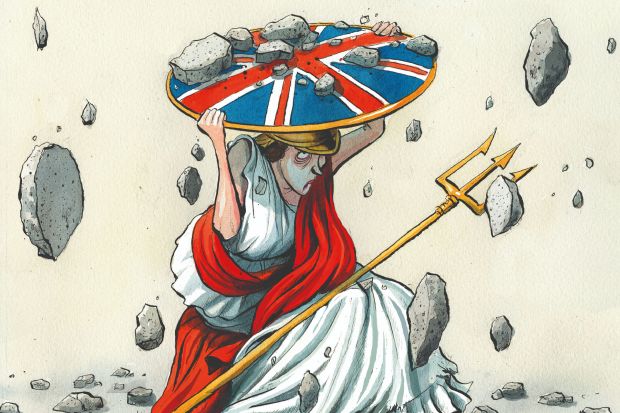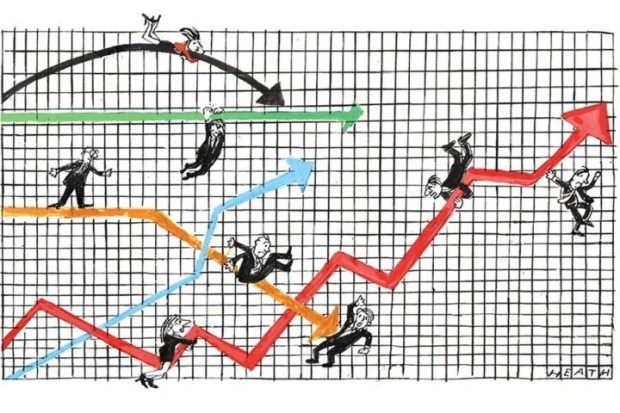International cooperation is alive and well – at least when it comes to raising taxes. One hundred and thirty six countries have now signed up to a global minimum corporation tax of 15 per cent, proposed by G7 countries in June and pushed heavily by the UK Treasury. This is another step forward for what is thought to be the biggest overhaul to the international tax system in a century.
The installation of a corporate tax floor is part of a comprehensive effort to reform how multinational companies are taxed: that is, to more precisely target where profits are being made (instead of where products are being created). Firms with a profit margin of over 10 per cent, which applies to roughly 100 multinational companies, will see 20 per cent of their profits above that margin diverted to the tax jurisdictions where they are operating. This it is estimated will reallocate $120 billion worth of profits once the new system comes in.
Companies set to experience the most change include Silicon Valley success stories like Google – a key reason why leaders in the United States, for years now, have pushed back on tech giant tax proposals made by other countries.
But Joe Biden is playing ball – on the condition that American companies paying more tax abroad go hand-in-hand with a crackdown on his tax competitors. The OECD, which has been pushing for more tax harmony for years, insists that the 15 per cent minimum will not ‘eliminate’ a competitive tax environment, only ‘limit’ it.
But already advocates of a higher floor are complaining that the deal doesn’t go far enough. There is talk in the States of raising corporation tax as high as 28 per cent – and there are plans in the UK to hike the highest rate to 25 per cent by 2023. It’s not difficult to see how this minimum rate starts to trend upwards. Proponents of the scheme might claim tax competition can still take place (no doubt on a smaller scale). But it’s hard to see why G7 countries that have already decided to hike their corporate tax rates would stand in the way of increasing the floor (and decreasing their competition).
This is especially the case when one of the major hurdles to implementing the corporate minimum seems to have vanished without much of a battle. Many countries with competitive tax rates, including Ireland (which currently has a corporate tax rate of 12.5 per cent), have signed up to the agreement without much public fuss. Only four countries out of the 140 countries in the OECD/G20 Inclusive Framework, including Kenya and Sri Lanka, continue to hold out.
The OECD’s statement on the deal makes no mention of the consequences for countries that don’t implement a minimum 15 per cent corporate tax rate. Perhaps there’s hope they’ll come round to the plans by the time it’s time to officially sign up, at a ‘multilateral convention’ to be held in 2022 – or at least by 2023, when the rules are implemented.
Exemptions are already kicking in too, raising questions about the extent to which this really guarantees a ‘fairer’ system – or one that picks winners and losers on the international level. Hungary, for example, has been granted a longer window for upping its rate (despite countries such as Switzerland noting that 2023 is far too ambitious of a target to make all the proposed changes).
The minimum global rate is not yet a done deal: this 15 per cent tax is supposed to replace calls for digital taxes that target the likes of Google and Amazon, which will require ‘the standstill and removal provisions in relation to all existing Digital Service Taxes and other similar relevant unilateral measures.’ This means countries like France need to completely drop their digital tax threats against US companies. Meanwhile, the US midterm elections which take place next year, and indeed the presidential election in 2024, could see the Republican party and possibly a new president radically shift position. Without the support of the United States, for whom many of the changes are targeted, it’s hard to see how the deal remains intact.
But regardless of what happens now, an established consensus has emerged that tax competition is something to be tackled, rather than encouraged. A precedent is being set that the world’s biggest economies can set the tax codes of smaller nation states.
This move away from liberal economic thinking – that competition attracts business and spurs on growth – is possibly more meaningful than the proposed deal itself. For countries like the United States and the UK, which have used market competition to build up their own prosperity, giving up on this principle may come to define short-term thinking.<//>
Got something to add? Join the discussion and comment below.
Get 10 issues for just $10
Subscribe to The Spectator Australia today for the next 10 magazine issues, plus full online access, for just $10.




















Comments
Don't miss out
Join the conversation with other Spectator Australia readers. Subscribe to leave a comment.
SUBSCRIBEAlready a subscriber? Log in